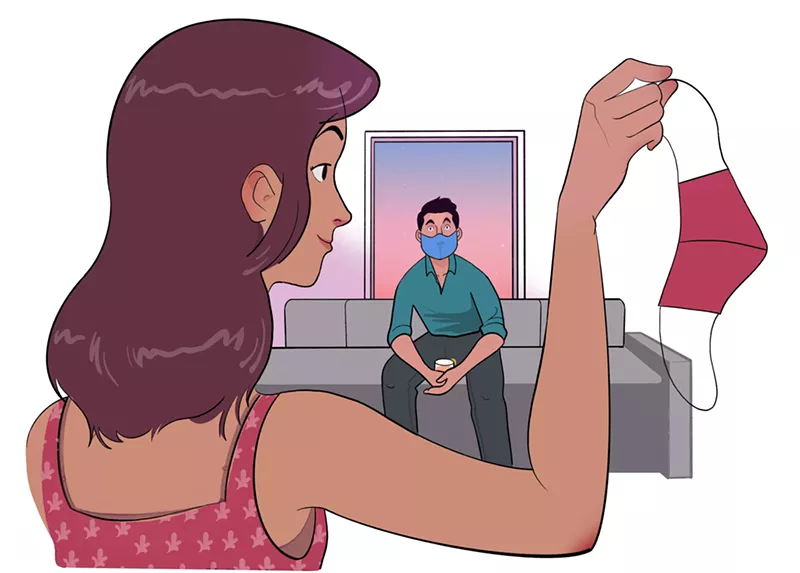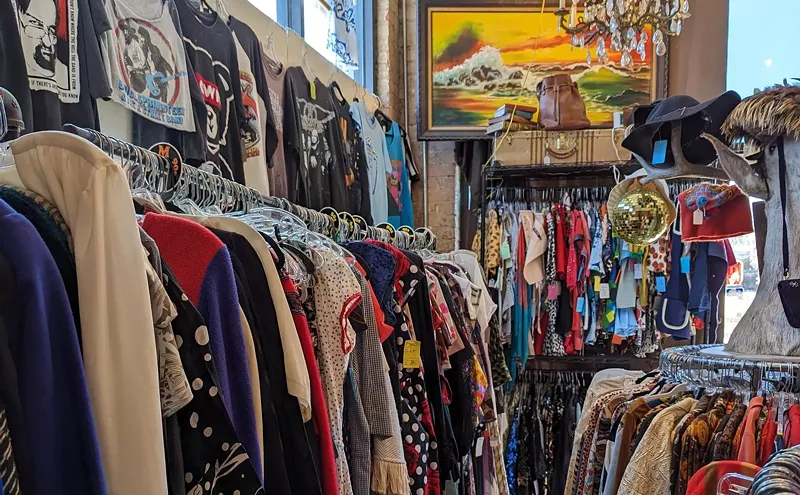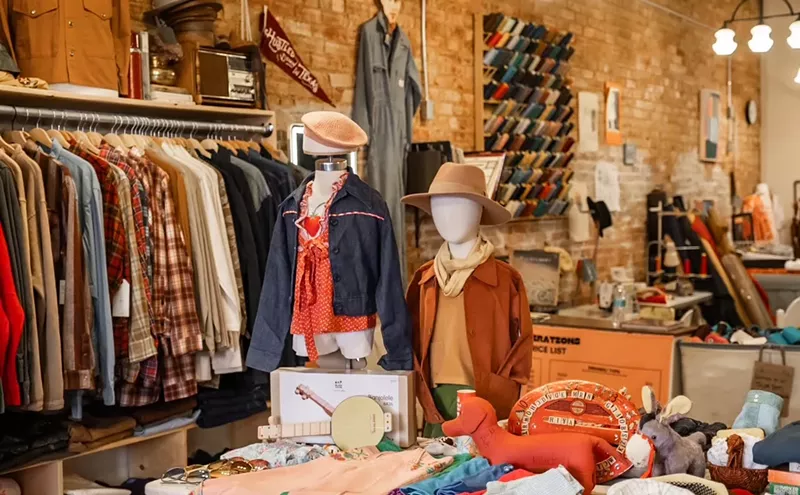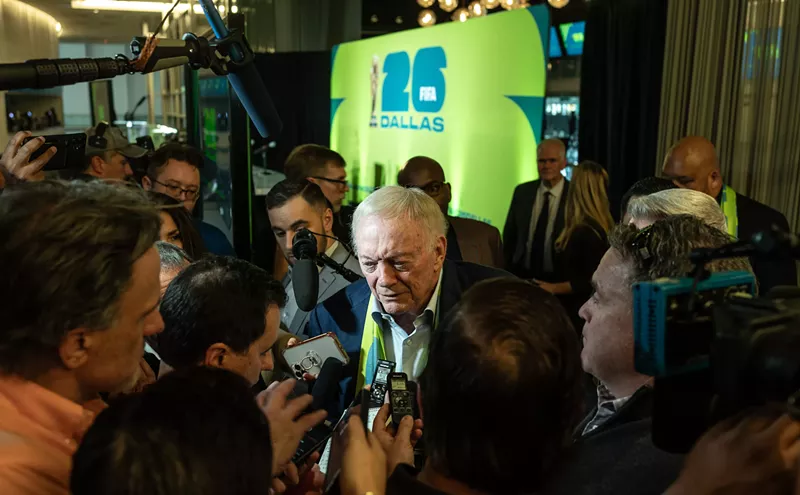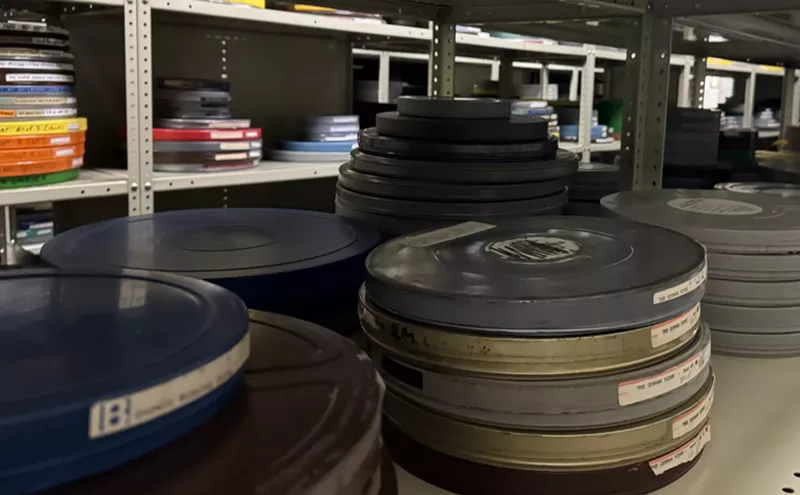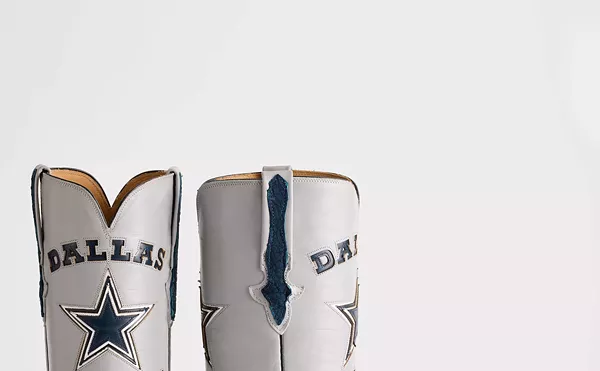The two had matched on dating app Hinge, but when the time came to see each other IRL, he asked to meet her in a private location. He was “weirded out,” he said, by meeting someone who was wearing a face mask.
“I told him I wasn’t comfortable meeting a guy from the internet not in a public place,” Hall says. “So the date never happened.”
The pandemic has made almost everything harder, including dating. A little more than a year ago, you could comfortably meet up with your dating app matches, flirt a little and end the night with a kiss. On top of the many dangers associated with dating strangers, especially for women, dating during the pandemic could literally bring the kiss of death.
There’s an enormous risk attached if you want to get any action. In Texas, 2.75 million people have had COVID-19 and 47,000 of those people have died. In Dallas County, the case number is 288,000 with 3,700 deaths. Because the virus is transmitted through “respiratory droplets from coughing, sneezing, or talking,” health experts advise not to kiss or have sex with people outside your quarantine bubble.
Kendall Gallagher, an elementary school teacher, says she and her boyfriend started dating during the pandemic after first meeting on a dating app. Gallagher says she felt comfortable meeting with him because “he’s a parent” and probably not “doing stupid stuff.” Their dates usually took place outdoors at a restaurant. Then, in September, both of them got COVID-19, and her infection caused heart failure.
“Getting COVID, you don’t know where you get it from,” she says. “He’s like, 'Did you give it to me, or did I give it to you?' It’s like this weird kind of betrayal because you can’t figure out where the hell you got it. Did both of you make a wrong move and go to that restaurant where someone was coughing? Did we not leave fast enough? Or did him going to Home Depot to get something for the stupid wall in his garage, did he catch it there? Did I bring it back from school?
"It’s an unintentional betrayal feeling and even guilt. I’m like, 'Did I give this to us?' I got too close to a kid who was coughing, or I took off my mask and in that split second to take a sip of water and I got it? It’s just, like, you don’t know.”
Before Meagan McNeely gives a guy from a dating app her phone number, she sends him a list of questions to gauge how seriously he takes the pandemic. Do you wear a mask in public? Have you/do you plan to get the vaccine? How awful is Greg Abbott on a scale of 1 to insurrection attempt? The pandemic — and whether someone believes masks work — somehow became undoubtedly political. While politics used to not come up until the third or fourth date — or never — some, like McNeely, are asking the tougher questions right off the bat.
"This change in courtship behavior has established connections built around deeper connections and real and honest discussions about values and experiences.” – Dating expert Stefnie Howley
tweet this
According to the 2020 Singles in America survey, which surveyed 5,000 unmarried people in August, 37 percent of respondents said knowing a potential partner’s political views was "somewhat important," and 19 percent wanted to learn them during the first face-to-face conversation. McNeely is among the 3 percent who want to know a potential date’s political views before even deciding to match with them on an app.
Kraig Reeves was one of the men who received her list of questions. It didn’t turn him off, though; instead, it showed him that McNeely was different and interested in something besides herself.
“I thought it was really nice, actually, because it gave me an insight into her intelligence or her political affiliations,” he says. “This is someone who cares about something besides how they look or posting a gym selfie.”
To some, asking a potential date about their pandemic habits seems obvious. Have you been social distancing? Do you wear a mask? Do you, like, believe this is a real threat to society? But according to the Singles in America survey, just 1 out of 4 daters in Dallas insist that both people wear a mask throughout a date. Three out of 10 had plans to ask their date if they had been social-distancing, and 19 percent of people had plans to ask their date if they had already been tested for COVID-19.
The low number of Dallasites taking precautions does and doesn’t surprise Paulos Feerow, a local comedian. He’s surprised even 1 out of 4 people wear masks throughout an entire date, but he’s not surprised the numbers are so low.
“It just felt like everyone was out last summer,” he says. “Like nothing had changed. I live pretty close to some bars that hadn’t shut down and didn’t seem to enforce any capacity limits. But I thought maybe I was just delirious from seeing the same four walls every day.”
Feerow says he and his now girlfriend tried to stay as distant as possible during their first few dates, which consisted of walks around Oak Cliff, hanging out on a patio and seeing art spaces. Feerow has a young niece and nephew he’s often around and wanted to avoid unknowingly passing COVID-19 onto them. Finding a woman who was also cautious was important to him. By the fourth date, Feerow says they felt comfortable getting closer.
“I think it was a mutual understanding that we were being as cautious as possible,” he says. “There was some trust there.”
McNeely never learned to trust of one of her dates during quarantine. When McNeely’s flame wanted to keep the relationship open, she didn’t think that was a good idea.
“While I hated that for personal reasons, I felt really weird about that for COVID reasons,” she says. “Like, I know you’re going to be wearing a mask, and I know where you’ve been, but I don’t know where she’s been or if she follows [guidelines].”
Some people took the safer route when it came to dating — keeping their partners to just one. And with so much time together, it’s not shocking that two people who are dating would get to know each other faster and more deeply. Stefnie Howley, a dating expert at Match, says the lockdown forced people to “slow down” and have more meaningful conversations.
“Isolation quickly became a very real thing for many singles, and when lockdowns created that physical distance, singles found ways to connect on a deeper and more emotional level,” Howley told us via email. “Over the lockdown period, we found that singles became less concerned about a person’s looks and focused more on getting to know a person before meeting up in real life. This change in courtship behavior has established connections built around deeper connections and real and honest discussions about values and experiences.”
When Texas announced it was heading into lockdown in March 2020, Heather Hanson, a 30-year-old recent divorcee, had a moment of panic. She was living in and working from a studio apartment she hated, and she didn’t want to endure a pandemic alone. Suddenly, the thought of getting back together with her Uber driver ex-boyfriend didn’t seem like such a bad idea.
“I was like, ‘Maybe we can just see where this goes. He’s kind of being nicer to me now,’” she says. “We ended up quarantining together, and he was the only person I saw for days at a time. I feel like we trauma-bonded together through that whole process.”
“We ended up quarantining together, and he was the only person I saw for days at a time. I feel like we trauma-bonded together through that whole process.” – Heather Hanson
tweet this
Turns out isolating with a “controlling” boyfriend is a bad idea. And without being able to see friends or family, Hanson didn’t quite realize how bad it was.
“I was like, ‘I’ll just white-knuckle it,’” Hanson says.
Even though Hanson’s boyfriend would freak out if she stayed at dinner with friends too long, and once he got mad when she bought a house without him, she chalked his behavior up to stress — because there really is no “right way” to live through a pandemic.
“Everybody’s going through a bad time, so some of his bad behavior, I was like, ‘Oh, well maybe it’s anxiety from the pandemic,’” Hanson says. “‘It’s a new relationship, so we’re having these pop-offs, but it’s going to get better.’ For his sake, I was kind of giving him the benefit of the doubt. I was like, ‘I’m also not on my best behavior all the time. It’s hard. It’s stressful. I cry for no reason.’ I think a lot of people are going through that.”
The opposite happened for Rachel Bottlinger, a Texas native, and her boyfriend. The two went on two dates before the country went into lockdown. They decided to quarantine together and one year later, they’re still together.
Because they only knew what each other was like isolated at home, once they started socializing, Bottlinger's boyfriend’s habits caught her off-guard.
“I’m very much an extrovert, and he’s very much an introvert,” she says. “We had a few people over for one of my friend’s birthday parties, and he just left. He went to walk around the block. And I’m not like that at all. I panicked. I was like, ‘Are you OK?’ And he was like, ‘I just needed to get away from people.’ This is new to me. I thought that he was mad at me or something happened. And he was like, ‘No, I just needed to get some air.’”
Couples who courted indoors may only know what their partner is like working from home and away from friends and family. As public places open back up in Dallas and more people receive the vaccine, some couples might have to start over.
“It’s going to be interesting after everything reopens because I feel like I’m going to re-learn him all over again," Gallagher says. "Because now I know COVID Alex, but now there are social things opening up, and I’m like, 'Is he going to be a germaphobe still or are you going to be a little bit different now that we can go out and be social with friends?'
“We’re going to re-learn the relationship and grow more together.”

